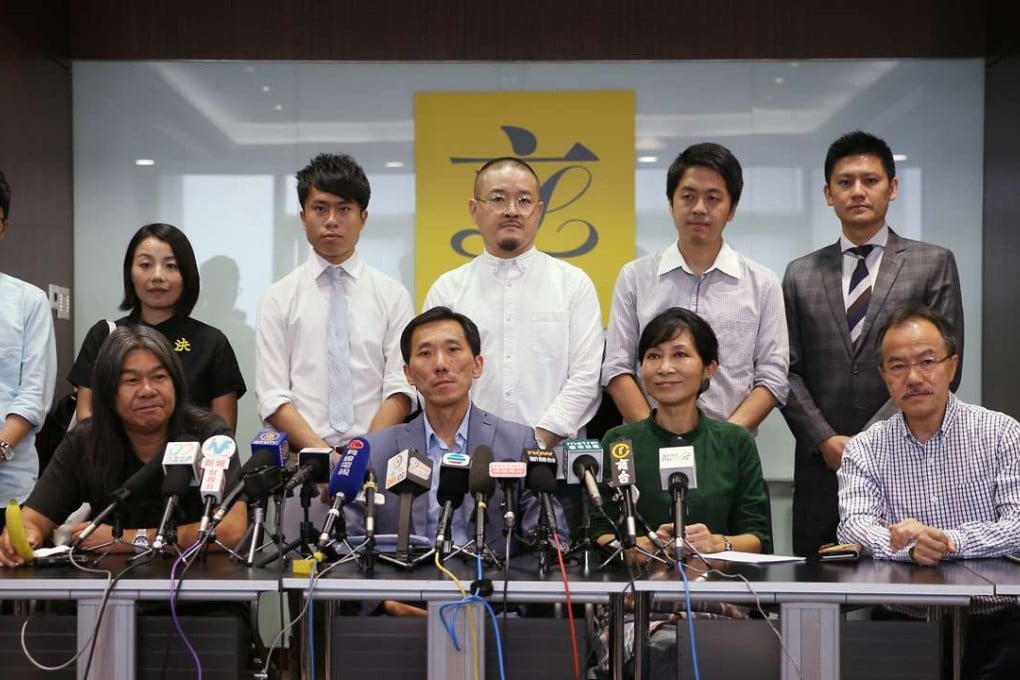Laboured explanations fail to satisfy sceptical critics of Hong Kong Wang Chau housing project
While officials explain the various consultations they held, opponents vow to press on with plans for a formal inquiry into the fiasco

Top officials were at pains on Wednesday to deny succumbing to pressure from rural leaders in scaling down the Wang Chau housing plan, but that failed to impress pan-democrat and localist lawmakers, who are determined to investigate the controversial project after they take office next month.
While ministers insisted the government’s ultimate goal was to build 12,700 public housing units on a brownfield site largely occupied by Yuen Long rural strongmen, they failed to explain when that would be accomplished if the original completion target date of 2026-27 was no longer practical.
Wednesday’s press conference was as highly anticipated as it was unusually high-powered, marking the first time since March 2013 that Chief Executive Leung Chun-ying and Financial Secretary John Tsang Chun-wah have attended a media briefing together. Secretary for Transport and Housing Anthony Cheung Bing-leung and acting Secretary for Development Eric Ma Siu-cheung were also there, along with other top officials.
The political storm over the Wang Chau project was set off by newly-elected lawmaker Eddie Chu Hoi-dick’s campaign to draw public attention to concerns that officials lobbied rural leaders behind closed doors and failed to consult villagers who would have to make way for 4,300 public housing flats.
Cheung revealed, for the first time, details of the Housing Department’s four lobbying sessions with rural leaders and district councillors that were held after Leung chaired a meeting in June 2013 and proposed splitting the Wang Chau development into two phases that would produce 17,000 flats in total.
